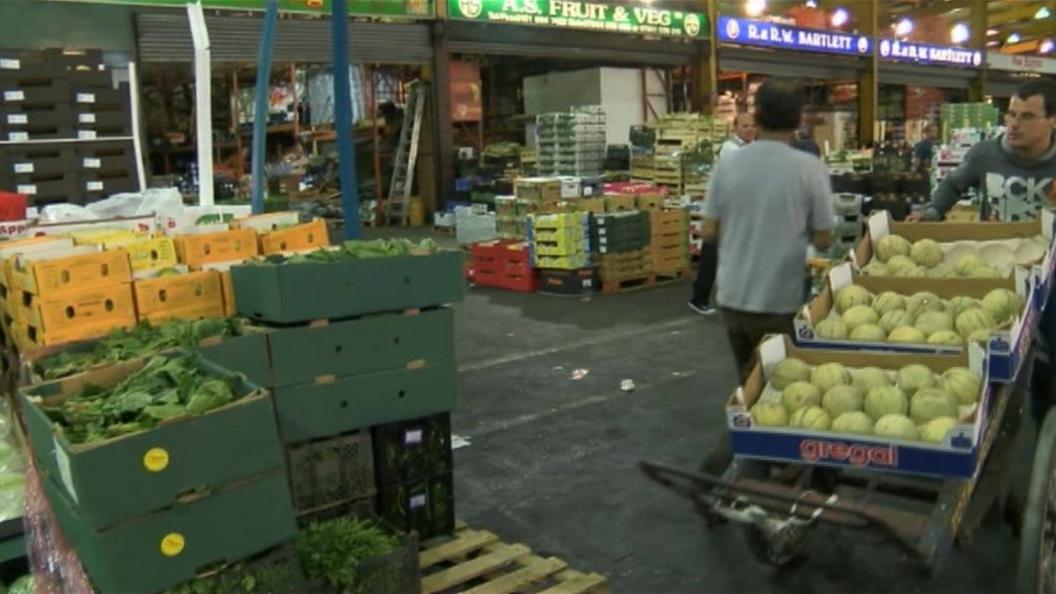Is 2015 to be Birmingham's year?
- Published
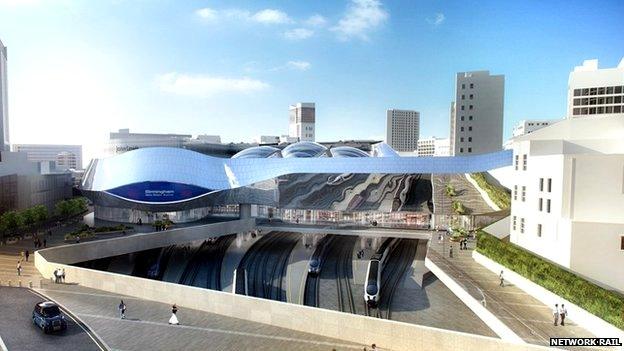
The redevelopment of New Street station is just one of several big regeneration projects in Birmingham
Life in Birmingham over the past decade has sometimes felt like a tale of woe: the further collapse of manufacturing, public spending cuts, horrific tales of child abuse, businesses closing and relocating - even the indignity of Greater Manchester convincing people that it is the nation's "second city".
For the past 10 years Birmingham (and the Black Country) has come top of all of the bad league tables and bottom of all the good ones.
That, at last, is changing and sooner or later the rest of the country will know about it.
A series of reports since the beginning of the year all highlight something that Brummies probably already know: the city's experiencing a resurgence.
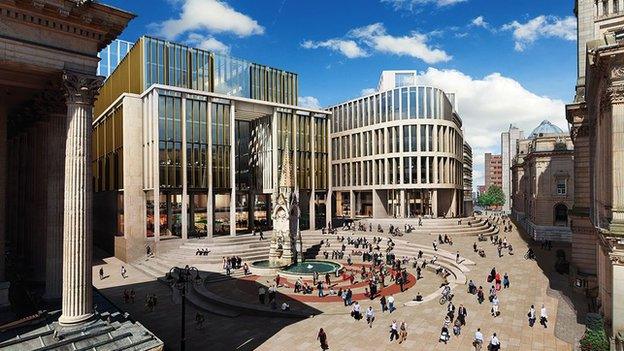
Work on the 10-year, £500m redevelopment of Paradise Circus began in January
'Real recovery'
The first of these reports, from the Office for National Statistics, said more people were relocating to Birmingham from London than any other city, then the Rough Guide named Birmingham among its top 10 World cities for 2015, and last weekend the Sunday Times said Moseley was the best urban area in which to live anywhere in the UK.
It is easy to dismiss these claims as nothing more than news filler, but taken together they are indicative of a real recovery.
Take a look at what's happening this year.
The new New Street station is due to open along with the Grand Central shopping area. The Mailbox shopping centre is relaunching soon. The Grand Hotel is undergoing a major revamp.
The NEC has a new owner and will soon be home to the country's biggest casino as well as a new outlet shopping centre. The redevelopment of Birmingham's Eastside and Paradise Circus are well under way, and now we're learning of ambitious ones for the area around the wholesale markets, Birmingham Smithfield as it will be known.
Although along its route there are passionate objections, if HS2 is finally approved by Parliament later this year, the floodgates of investment will be fully opened for Birmingham.
There's a manufacturing revival led by the marquee names like Jaguar Land Rover, but driven by hundreds of small and medium sized businesses. The "Birmingham Made Me" Expo in 2014 highlighted just a few of those successes.
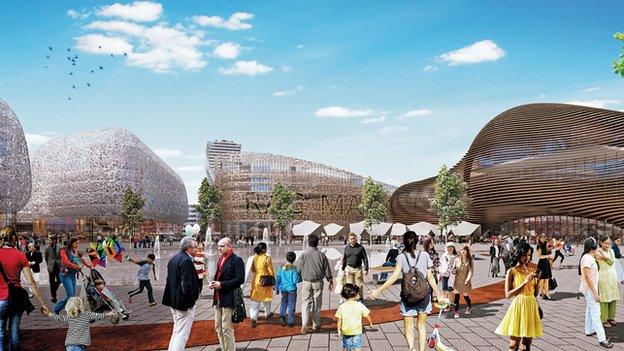
Plans for the £500m Birmingham Smithfield regeneration scheme were revealed on Wednesday
'Selling Birmingham'
It is no surprise that in another recently published survey Birmingham was found to have had the highest number of start-up businesses for any city outside London.
The city's arts and crafts sector is booming - just take a look around the Jewellery Quarter and the Custard Factory.
Villages in the area are also seeing revival, not just the aforementioned Moseley, but Kings Heath, Selly Park, Hall Green and Harborne.
Birmingham has always tried hard to "sell" itself to the rest of the country. Films, brochures and speeches were made highlighting the miles of canals, the parks, the heritage, the ICC, NIA, Symphony Hall and so on.
But it always gave the impression that it was trying too hard, implying an underlying insecurity over its identity.
It is as if Birmingham has finally accepted that it is unloved by those further north and south, thought "to hell with it". This new air of self-confidence seems to be working.
High unemployment
Of course there are still major problems, as you would expect in a city of more than a million people.
Unemployment is still too high, poverty and deprivation indicators likewise.
Birmingham still doesn't punch its weight in areas like broadcasting, although the imminent arrival of the BBC Academy and more than 80 new jobs shows the trend is reversing.
Despite swingeing cuts, the council remains a significant player, and seems to be carefully redefining its role as a kind of "facilitator" for the city's revival. Big players like KPMG and John Lewis are also helping to rebrand Birmingham.
This year will see the Ashes, the Rugby World Cup and international athletics - but what would really help put the city on the international map is as successful a football team as London and Manchester.
- Published11 March 2015
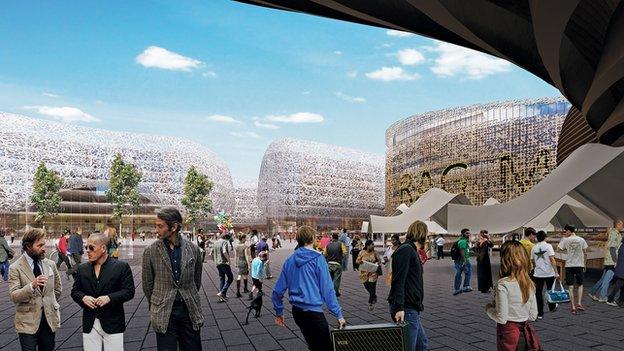
- Published15 December 2014
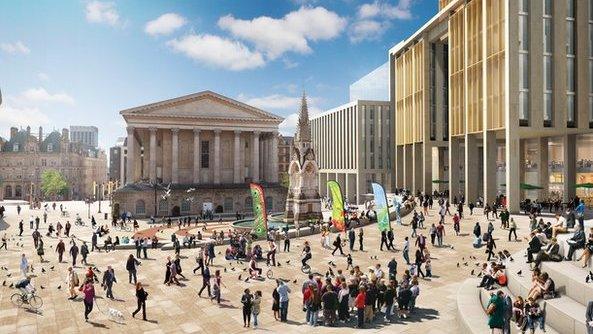
- Published31 July 2014
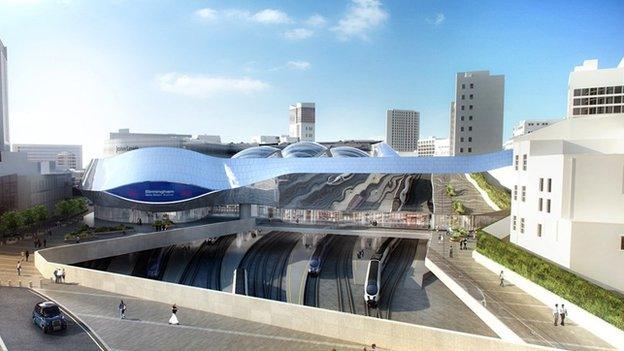
- Published11 March 2014
- Published11 August 2014
